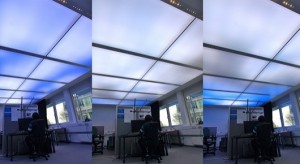How does an albatross and a piece of plastic relate to one another? The connection isn’t obvious, but to those who are part of The Midway Journey, it is. I recently came across a haunting image of what appeared to be a bird of some type with plastic pieces inside of it. At first glance, I thought the pieces had been placed their for some unknown purpose, but after some research I realized this was not the case. The image I saw is linked here (photo cred: Chris Jordan @ Midway Project), just in case there are some who are wary with these kind of things (I know I am).
You are probably wondering what is happening. These birds live on a series of islands called the Midway Atoll. For those who are familiar with the Battle of Midway, this is the very place the naval battles occurred. Presently, these islands serve as a home for a large population of the world’s albatross. It is unfortunate to know that human habitation has altered the living conditions of these islands and parts around it. The most notable development is probably the huge amounts of garbage being dumped into the Pacific Ocean, at such a great calibre that a plastic belt extends from Hawaii to Japan. This extensive area of garbage has now been coined the “Great Pacific Garbage Patch” and was brought to light by an oceanographer by the name of Charles Moore. This increase in garbage has forced the residing albatross to unknowingly feed their young pieces of plastic, mistaking them as food.
Studies have shown a negative correlation between plastic ingestion and albatross chick survival rate. It has been suggested that due to the increase in plastic digestion, the chicks are not actually consuming food and therefore die of emaciation and dehydration. The Midway Project aims to document the reality of our consumption of plastics and its detrimental effects on the environment around us. By taking pictures of the Midway Islands, they aim to share their journey and increase awareness. This is a real concern as plastics are insoluble in water and their durable properties make them very resilient to degradation. Not only is this a problem in the Midway Islands, but scientists have also discovered other areas like in the North Atlantic Ocean where our plastic debris is accumulating, similar to the Great Pacific Garbage Patch. I’ve included a short video below for more information about the Midway Project. I highly recommend checking out them out!

References















